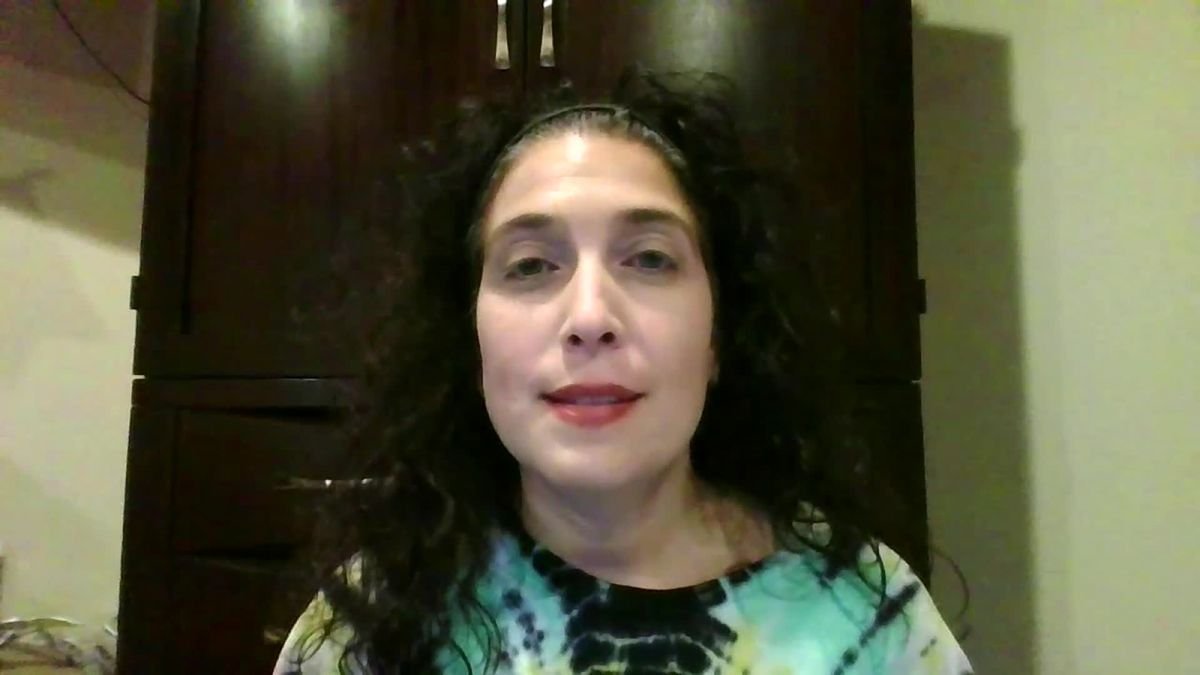This Covid long-hauler is afraid to take a shower a year after her infection because of the amount of hair she has lost

March 26 marks the one-year anniversary of Lauren Thomas Mandel’s Covid-19 infection — and she and her family are still feeling the effects of the illness.
The worst part of a year of symptoms, she told CNN’s Chris Cuomo, is the amount of hair she has lost. In August, she said it was like she had shed a small bird’s nest of her hair.
Now, she has to play a mental game to bring herself to wash her hair and potentially lose more, she said.
The mother of four said she, her husband and their 18-year-old son are among the growing number of people who are suffering from what’s called long-term Covid or long Covid. Although experts are still learning about this condition, they say even those with mild cases can have symptoms that persist for months.
Mandel said her son’s taste and smell have improved but haven’t fully recovered. And her husband, a doctor, still has tingling through his body, shortness of breath and brain fog.
After years of being active, Mandel said three weeks ago she was diagnosed with asthma. Although her doctors aren’t sure if the virus caused her condition, she says she has not been breathing easily since that first day she felt her infection.
“Just sitting and watching TV, I can’t get that breath in sometimes,” she said.
She is pushing herself to exert more energy, she said. She started the new year walking on the elliptical for 2.5 minutes, she told CNN. Now she is up to 15 minutes.
What people are feeling
The long Covid condition is still a mystery, but doctors say they are learning more all the time.
More than 100 of those symptoms have been reported by patients, including fatigue, headaches, brain fog and memory loss, gastrointestinal problems, muscle aches and heart palpitations.
“I just am so amazed by what comes through on a daily basis,” said Dr. Dayna McCarthy, who treats Covid long haulers at New York’s Mount Sinai. She hears a long list of symptoms, including brain fog, rapid heart rates and irregular blood pressure.
It’s not just people who were severely ill and hospitalized with the virus who are still suffering months after getting sick.
“New or prolonged symptoms may occur beyond four to six months among patients with Covid-19, regardless of severity of acute SARS-CoV-2 infection,” the CDC’s Alfonlso Hernandez-Romieu said during a webinar for physicians in January.
Physicians and therapists say they are treating people of all ages and those who were extremely healthy before they got Covid — including marathon runners, athletes and trainers.
What long-haulers can do
Those suffering from long Covid, who have dubbed themselves long-haulers, have turned to support groups and clinics to get through their condition.
Facilities are opening around the country to meet help this growing need for assistance.
New York’s Mount Sinai was the first to open a specific clinic in May when it opened its Center for Post-COVID Care.
The center has seen more than 1,600 patients, and there’s a months-long wait for appointments because demand is so high.
Piedmont Pulmonary COVID Recovery Clinic in Atlanta opened in November and has already had about 600 referrals, said Dr. Jermaine Jackson, the medical director.
“We’re learning more and more about this virus from day to day,” he said. “I like to say we’re building the plane as we fly it, or we are putting on the wheels as we drive the car.”
Currently, there is no specific treatment for long Covid. For now, doctors focus on treatment based on the symptoms reported by a particular patient, especially because patients have varying symptoms.
Initially, many patients who felt symptoms months after infection said they had doctors dismiss their symptoms, but now they say they are being taken seriously.
The US Centers for Disease Control and Prevention last month held a webinar to help physicians identify the signs and symptoms of long Covid and learn about how these patients are being treated.
Those who are suffering, as well as researchers looking to understand their condition, are benefiting from online support groups.